EU Decided To Work Along the Line of Least Resistance
Adelina Marini, April 25, 2015
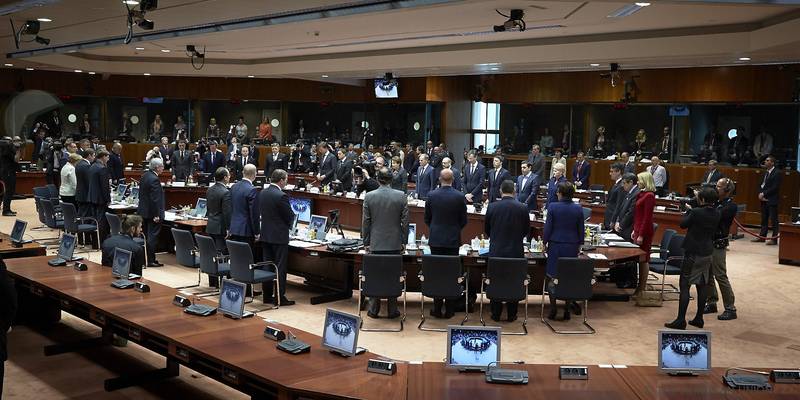 Despite the huge expectations and the demanding situation, the leaders of the EU member states failed to agree on the most serious issues but only on those that are the easiest to do. They decided the budget for the European border agency FRONTEX to be tripled to fully finance the missions Triton and Poseidon and adopted the 10-points plan of the European Commission but they added several points more. One of the additional points is the invitation the EU high representative for the foreign and security policy, Federica Mogherini, to prepare a new foreign operation (CSDP). Since 2003 the EU has launched some 30 peace missions and operations aimed at stabilising and ensuring the security of Europe and beyond. At the moment, EU has five military operations - in Mali, the Central African Republic, Somalia, the operation Atalanta against the sea piracy. The civil missions of the Union are much more. It is still not clear what will the operation which Ms Mogherini is expected to prepare be - a military or a civil one.
Despite the huge expectations and the demanding situation, the leaders of the EU member states failed to agree on the most serious issues but only on those that are the easiest to do. They decided the budget for the European border agency FRONTEX to be tripled to fully finance the missions Triton and Poseidon and adopted the 10-points plan of the European Commission but they added several points more. One of the additional points is the invitation the EU high representative for the foreign and security policy, Federica Mogherini, to prepare a new foreign operation (CSDP). Since 2003 the EU has launched some 30 peace missions and operations aimed at stabilising and ensuring the security of Europe and beyond. At the moment, EU has five military operations - in Mali, the Central African Republic, Somalia, the operation Atalanta against the sea piracy. The civil missions of the Union are much more. It is still not clear what will the operation which Ms Mogherini is expected to prepare be - a military or a civil one.
The leaders of the 28 released a declaration the writing of which took, in the words of Croatia Prime Minster Zoran Milanovic, too much time. He said on his way out of the Council on Thursday evening that some countries fought for every comma in the text which he found unnecessary. He did not say which were the most controversial points but it is not hard to see them in the too vague a text. One of them could be the point that calls to reinforce the political cooperation with the African partners at all levels to deal with the root causes for the illegal migration and the fight against human trafficking. EU will raise all those issues with the African Union and the countries that are a major source of migrants and refugees to Europe.
Before the beginning of the several-hours long summit in Brussels, the statements of prime ministers and presidents revealed the division within EU on this issue. To some, the problem is a European one whereas, to others, it is not. European Council President Donald Tusk has reiterated in the past days that the developments in the Mediterranean and the reasons for them are a European problem, although last night, during the press conference after the summit, he underscored that Europe is not the reason for these problems. According to Luxembourg Prime Minister Xavier Bettel, the problem is international, not just a European one. He believes that if the EU would organise a real rescue operation this would be an incentive for the traffickers. This is a European problem but what is necessary must be done these people not to have to cross the Med, said Alexander Stubb, the premier of Finland.
But the Dutch prime minster, Mark Rutte, thinks differently, He said before the summit that this was not a European problem, but an African one. Africa should take its part of the responsibility but so far it has done too little, he said.
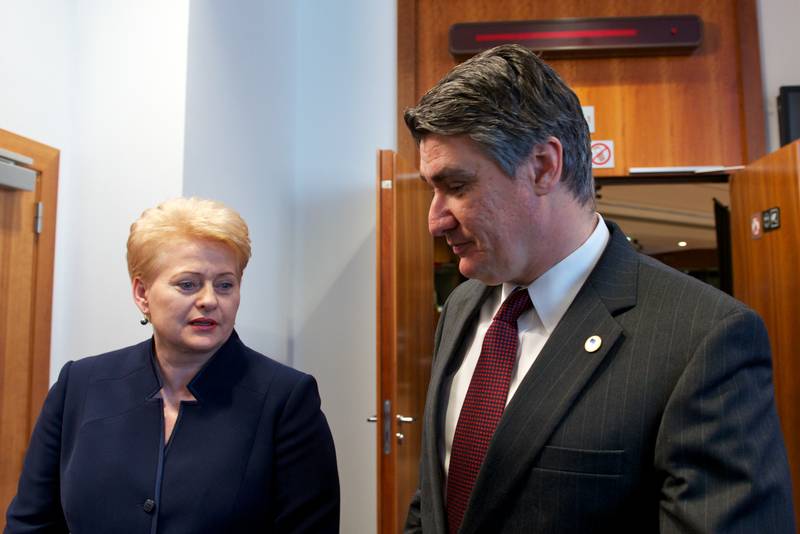 One of the points in the leaders' statement is the commitment to increase the assistance for Tunisia, Egypt, Sudan, Mali and Niger for monitoring and control of the land borders and routes. Croatia Premier Milanovic, however, was indignant with this point, saying after the summit: "You cannot demand of the countries [...] to control better their borders and inside Africa to prevent illegal migration so the people cannot reach the Mediterranean shore and create problems for us in Europe. These people, some of them, are simply trying to save their lives. Boko Haram does terrible things across Africa. This is spreading. You cannot expect these governments to ban people from crossing the border".
One of the points in the leaders' statement is the commitment to increase the assistance for Tunisia, Egypt, Sudan, Mali and Niger for monitoring and control of the land borders and routes. Croatia Premier Milanovic, however, was indignant with this point, saying after the summit: "You cannot demand of the countries [...] to control better their borders and inside Africa to prevent illegal migration so the people cannot reach the Mediterranean shore and create problems for us in Europe. These people, some of them, are simply trying to save their lives. Boko Haram does terrible things across Africa. This is spreading. You cannot expect these governments to ban people from crossing the border".
Before the summit, Belgium Premier Charles Michel expected ambition for the resolution of this "dramatic situation". However, the summit ended without ambition and the European Commission chief, Jean-Claude Juncker, did not hide his disappointment: "I would have liked us to be more ambitious but this wasn't possible".
The content of the statement and the positions stated by individual members of the European Council make it clear that the EU will focus on defensive measures while, in the same time, it will seek a political solution to the numerous conflicts that are a source of Europe's migration problems. Again Croatian Premier Zoran Milanovic said that the European legislation was not prepared for such situations. "This is a completely new situation. I think that Europe will succeed to resolve it but it is new. New solutions are being sought", he said. In the text of the statement, however, cannot be seen a commitment for a comprehensive review of the adequacy of the existing legislation so that it can be adapted to the current situation. Belgium's Prime Minister Mr Michel said on this occasion that it was a paradox to him that the Schengen legislation does not offer common migration rules. "We want the Commission to make proposals on this issue".
After the joint meeting of the minsters of foreign and home affairs on Monday, Dimitris Avramopoulos, who is responsible for migration, said that the Commission would review the Dublin regulation which deals with the refugees and illegal migration. He added that if some provisions were to be found inadequate they would be revised. However, this is not included in the 10-points plan of the Commission nor is it mentioned in the European Council statement from 23 April. It also proved to be one of the controversial points. "Finally, most challenging, how to reinforce European solidarity and common responsibility. We have to discuss difficult issues like resettlement, relocation and processing of asylum applications. Will be a discussion about readiness to sacrifice some national interest for common good", said Mr Tusk before the summit.
Alas, the statement is too unambitious. It says "increase emergency aid to front-line Member States and consider options for organising emergency relocation between all Member States on a voluntary basis". As a manifestation of solidarity is also one of the ten points in Avramopoulos's plan which envisages deployment of joint teams in the most affected countries to process asylum applications. One of the problems the repairs of the Dublin regulation could resolve is the fair relocation of refugees and migrants who are currently relocated on a voluntary basis and by only limited number of countries.
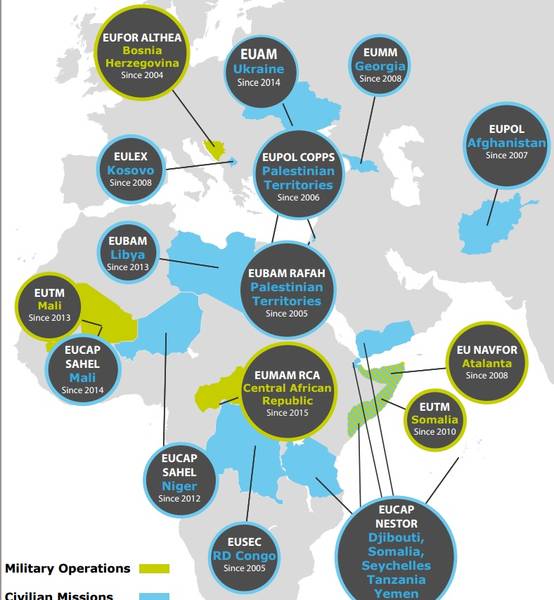 Latvia Prime Minister Laimdota Straujuma said that Latvia, which is currently holding the Council of Ministers rotating presidency, was preparing a voluntary solidarity programme for 5 000 refugees. According to the Belgian premier, though, this is not sufficient. Belgium is ready to raise the number to 10 000. All member states have to take refugees, concluded Charles Michel. Austria Chancellor Werner Faymann also called for better relocation. "It cannot alway be the same 10 member states", he said. Mark Rutte, the premier of the Netherlands, was even more frank in saying, responding to a question, that the question was not what the Netherlands was doing but what the others were doing.
Latvia Prime Minister Laimdota Straujuma said that Latvia, which is currently holding the Council of Ministers rotating presidency, was preparing a voluntary solidarity programme for 5 000 refugees. According to the Belgian premier, though, this is not sufficient. Belgium is ready to raise the number to 10 000. All member states have to take refugees, concluded Charles Michel. Austria Chancellor Werner Faymann also called for better relocation. "It cannot alway be the same 10 member states", he said. Mark Rutte, the premier of the Netherlands, was even more frank in saying, responding to a question, that the question was not what the Netherlands was doing but what the others were doing.
"A lot of member states are not cooperating yet. From the point of view of solidarity, all countries need to contribute. Burden need to be shared, and at the same time these burdens should be as low as possible", Mr Rutte added. Zoran Milanovic said that Croatia at this stage had no capacity to join the European solidarity. He recalled that the country relatively recently clashed with refugee flows because of the war after the break-up of former Yugoslavia. However, he pledged Croatia to pay partially for one Croatian patrolling ship. Equipment pledged also UK Prime Minister David Cameron - the Royal Navy flagship, three helicopters and two border control ships. Other member states, too, made similar pledges for patrolling or rescue operations in the Mediterranean.
And that is how things will go on until the next tragedy. The European president, Tusk, recalled that, in fact, the previous tragedy, which was actually the occasion of the extraordinary summit, happened not because of a lack of a EU rescue operation but during such an operation.
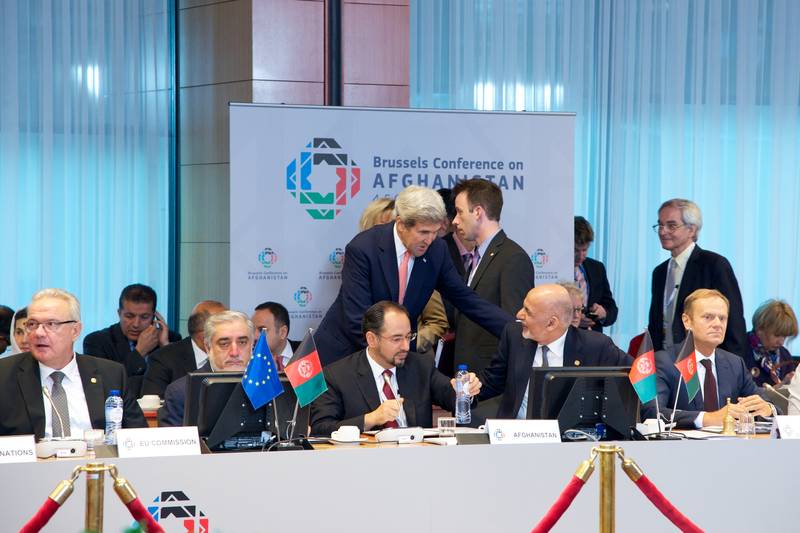 | © Council of the EU
| © Council of the EU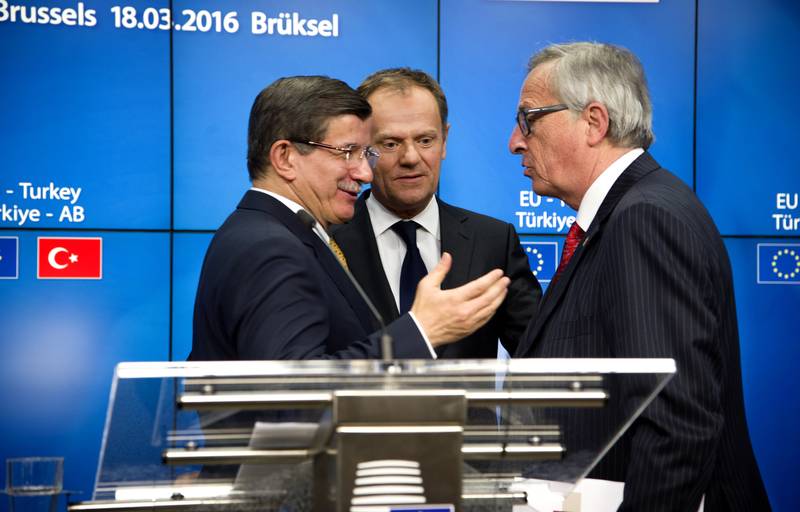 Davutoglu, Tusk, Juncker | © Council of the EU
Davutoglu, Tusk, Juncker | © Council of the EU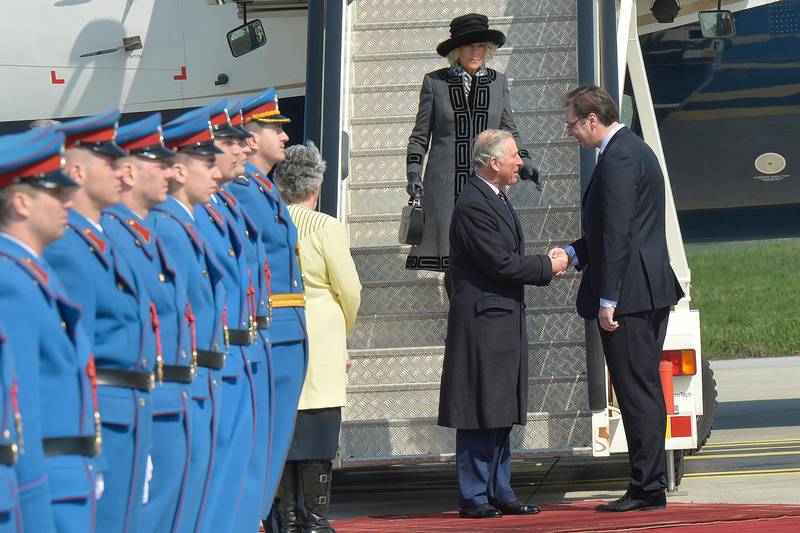 | © Vlada RS
| © Vlada RS